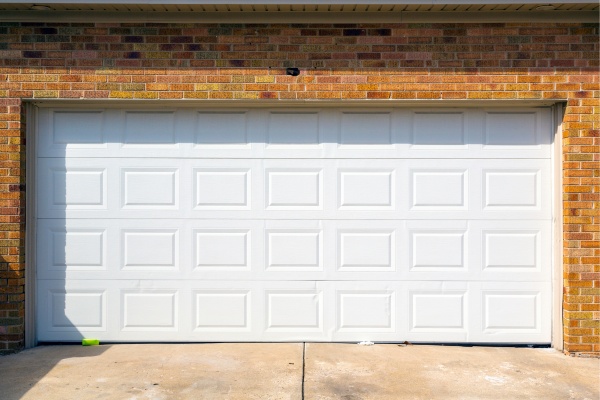Master Your Garage Door Opener: A 2025 Maintenance Guide
Keeping your garage door opener running smoothly is crucial for convenience, safety, and protecting your investment. This comprehensive guide provides a step-by-step approach to maintaining your opener, helping you avoid costly repairs and extend its lifespan. Whether you're a seasoned DIY enthusiast or a homeowner looking to understand essential maintenance tasks, this guide will empower you to keep your garage door operating flawlessly.
What are the Key Maintenance Tasks for a Garage Door Opener?
Regular preventative maintenance is key to ensuring the smooth and safe operation of your garage door opener. Addressing minor issues promptly can prevent them from escalating into major problems. Neglecting routine checks might lead to unexpected breakdowns, compromising both convenience and security. This section details critical maintenance tasks, including lubrication, safety sensor checks, and other important preventative steps. Proper maintenance directly impacts the overall lifespan of your opener and helps maintain its efficiency.
Regular Lubrication
Proper lubrication is essential for reducing friction and wear on moving parts. This simple task significantly extends the lifespan of your garage door opener. Neglecting lubrication can lead to increased noise, sluggish operation, and premature wear and tear on components like chains and belts.
Lubricate chains and belts using a silicone spray or lithium-based grease. Avoid using WD-40, as it's a solvent and will not provide lasting lubrication.Focus on all moving parts, including hinges, rollers, and the track system, for optimal performance and longevity.

Safety Sensor Checks
The safety sensors are critical for preventing accidents. Regular cleaning and testing of these sensors are essential for ensuring they function correctly. Malfunctioning sensors can result in the door not opening or closing properly or even worse, causing potential injury.
Clean the sensors with a soft cloth and compressed air, removing any dust or debris that might obstruct the infrared beam.Test the sensors by placing an object in their path—the door should reverse automatically. If it doesn't, you need to investigate further.
How Often Should I Inspect My Garage Door Opener?
Creating a regular maintenance schedule is vital for the longevity and smooth functioning of your garage door opener. Preventative care significantly reduces the risk of unexpected malfunctions and expensive repairs. A proactive approach not only keeps your system functioning optimally but also maximizes safety and ensures a longer lifespan for the entire system.
Recommended Frequency
While a yearly inspection is recommended, more frequent checks are beneficial, especially before seasons with extreme weather conditions. This preventative measure helps identify and address minor issues before they develop into significant problems.
Conduct a thorough annual inspection, examining all components, including the motor, tracks, rollers, and safety sensors.Perform seasonal checks, particularly before winter and summer, to address potential issues caused by temperature fluctuations or debris accumulation.
Signs that Maintenance is Needed
Recognizing the early warning signs of problems can save you time and money on repairs. Paying close attention to how your garage door opener functions can help you identify potential issues. Listen carefully for any unusual sounds during operation.
Unusual noises such as grinding, squealing, or clicking sounds indicate potential problems.Slow or jerky operation can suggest issues with lubrication, worn parts, or other mechanical problems.A door that hesitates, stops unexpectedly, or reverses without obstruction may signal malfunctioning safety sensors or other electrical problems.
What Tools Do I Need for DIY Maintenance?
Many basic maintenance tasks for your garage door opener can be handled with simple tools and supplies readily available at most hardware stores. While a professional may be needed for complex repairs, completing routine maintenance yourself saves time and money. However, always prioritize safety and consult the manufacturer's instructions before commencing any work.

Essential Tools and Supplies
Having the right tools on hand simplifies the process. This list covers the basics, but additional specialized tools may be required for more complex maintenance.
A variety of screwdrivers (Phillips and flathead)Pliers (needle-nose and regular)Appropriate lubricants (silicone spray, lithium grease)Cleaning cloths and compressed airSafety glasses and gloves
When Should I Call a Professional for Garage Door Opener Maintenance?
While some maintenance can be handled at home, there are instances when professional assistance is necessary. Attempting complex repairs without the proper https://conneranet752.cavandoragh.org/conquer-the-ice-your-guide-to-ice-fishing-near-edmonton-in-2025 expertise could lead to further damage or create safety hazards. A professional technician has the knowledge and experience to diagnose and solve complex issues quickly and effectively.
Indicators for Professional Help
Don't hesitate to contact a qualified professional if you encounter persistent problems beyond your skill set. Attempting repairs yourself could worsen the issue or create new safety hazards.
Persistent noise issues despite lubrication efforts.Malfunctioning safety features, such as erratic sensor operation or failure to reverse on obstruction.Problems with the motor or electrical components.
Benefits of Hiring a Technician
Professional technicians possess the expertise to diagnose and resolve complex problems efficiently and safely. They also have access to specialized tools and replacement parts that may not be readily available to homeowners.
Expertise in complex repairs and troubleshooting.Access to specialized tools and replacement parts.Warranty considerations—some warranties may be voided if repairs are not performed by authorized technicians.
How Can I Enhance the Longevity of My Garage Door Opener?
Extending the lifespan of your garage door opener involves a combination of regular maintenance and smart usage habits. Following these best practices helps avoid unnecessary wear and tear, preserving both performance and safety. A little proactive attention can significantly extend the useful life of your system and prevent premature failure.
Upgrading Components
Upgrading certain components can improve performance, security, and convenience. Smart openers, in particular, offer a range of added benefits, including remote access and security enhancements.
Consider upgrading to a smart opener with app control, offering increased convenience and security.Enhance safety features by adding backup batteries or additional safety sensors.
Best Practices for Daily Use
Avoid placing unnecessary strain on your opener; overloading it can shorten its lifespan. Keep the tracks clean and free of debris.
Avoid overloading the opener—ensure the door isn't carrying excessive weight.Regularly clean the tracks and rollers, removing debris that could hinder smooth operation.Avoid opening and closing the door excessively unnecessarily.
Frequently Asked Questions
What type of lubricant is best for a garage door opener?
Silicone spray and lithium grease are the recommended lubricants for most garage door openers. Avoid using WD-40, which is a solvent and does not provide lasting lubrication.
Can I adjust my garage door opener’s force settings myself?
Yes, but exercise caution and carefully follow the manufacturer's instructions. Incorrect adjustments can create safety hazards.
How do I troubleshoot a non-responsive garage door opener?
First, check the power supply, remote battery, and safety sensor alignment. If the problem persists, consult a professional.
Is regular maintenance really necessary for garage door openers?
Yes, regular maintenance significantly extends the lifespan of your opener, preventing costly repairs and ensuring safe operation.
What are the benefits of smart garage door openers?
Smart garage door openers offer convenience through app control, improved security features, and enhanced monitoring capabilities.
By following the simple maintenance steps outlined above, you can keep your garage door opener running smoothly and efficiently for years to come. Remember, proactive maintenance is always better than reactive repairs. Don't hesitate to seek professional help when necessary. Your garage door opener is a critical component of your home security and convenience; taking care of it is an investment worth making.